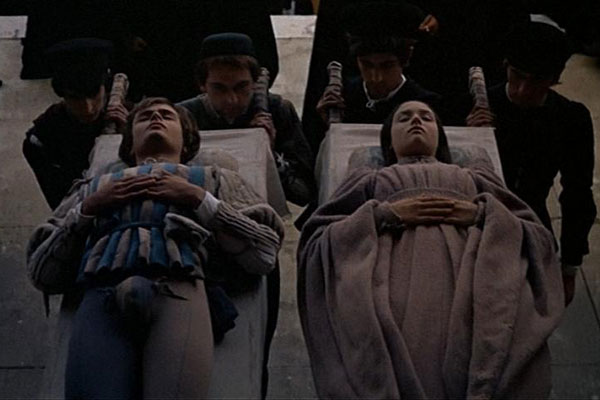Take a photo of a barcode or cover
informative

During the golden age of ancient Greece bards roamed the countryside mesmerizing crowds by reciting the epics of Homer. Thousands of men and women gathered and were moved to tears by tragedies performed outside in amphitheaters during sacred festivals. Such an amazingly powerful and profound experience for an entire population. What was going on here; why were people so deeply affected? Well, one of the sharpest, most analytic minds in the history of the West set himself the task of answering just this question - his name was Aristotle.
Indeed, Aristotle's Poetics is one of the greatest philosophical works ever written. For over two thousand years, philosophers, scholars and thinkers have been pouring over each phrase and sentence of the master's words as if they were nuggets of gold. There are enough commentaries to fill several thick volumes in a university library. Quite something since the entire Poetics is a mere twenty pages. But what coverage! To list several: plot, character, language and two concepts supercharged with meaning: mimesis (imitation) and catharsis (inspiring pity or fear).
Of course, in our contemporary world we don't listen to bards recite epics or go to amphitheaters to watch tragedies, but we have abundant experience of these dramatic elements since we, among other things, read novels and watch films. So, to provide a taste of Aristotle's work, I offer my modest comments along with quotes from the text. Please take this as an invitation to explore the Poetics on your own. Below is a link to a fine translation and a second link to an extraordinarily clear, brief, easy-to follow commentary.
"Poetry in general seems to have sprung from two causes, each of them lying deep in our nature. First, the instinct of imitation is implanted in man from childhood, one difference between him and other animals being that he is the most imitative of living creatures, and through imitation learns his earliest lessons; and no less universal is the pleasure felt in things imitated. . . . to learn gives the liveliest pleasure, not only to philosophers but to men in general"
Ah, pleasure! And pleasure in learning about life through imitation/fiction. Even if the story involves a Siberian prison camp or an insane chase of a white whale, there is a kind of pleasure in identifying with a character and living through the character's plight. Our humanness is enriched.
"Tragedy, then, is an imitation of an action that is serious, complete, and of a certain magnitude." -
The Maltese Falcon begins with very serious action: a murder. And the story is complete since at the end the case is solved and the criminals answer for their crimes. How many novels and films follow this formula? Round to the nearest million.
"Now as tragic imitation implies persons acting, it necessarily follows in the first place, that Spectacular equipment will be a part of Tragedy."
Even back in ancient Greece, Aristotle acknowledges how special effects can really juice the action.
"The most powerful elements of emotional interest in Tragedy- Peripeteia or Reversal of the Situation, and Recognition scenes- are parts of the plot."
I don't know about you, but I recall with the film Gone Girl my interest would ratchet up a few notches with every reversal and recognition. I can just imagine Gillian Flynn pouring over her Aristotle.

"The greater the length, the more beautiful will the piece be by reason of its size, provided that the whole be perspicuous."
When I go to a three hour movie or pick up a nine hundred page novel, my first thought: this had better be good. And when it is good, a great pay-off for time spent.
"Tragedy is an imitation not only of a complete action, but of events inspiring fear or pity."
Admit it, we remember most those times when we are emotionally wrenched.

Poetics, on line: http://classics.mit.edu/Aristotle/poetics.1.1.html
Commentary: http://www.english.hawaii.edu/criticalink/aristotle/gloss/gloss1.html
old dead dude talks about literary techniques in the most complicated way possible for like 300 pages and i ate it up
(read this so long ago idk why i didn’t have it marked as read)
(read this so long ago idk why i didn’t have it marked as read)
informative
reflective
slow-paced
Aristotle, you jerk
informative
slow-paced
“The function of the poet is not to say what has happened, but to say the kind of thing that would happen”
This is now the third time I have read Aristotle’s ‘Poetics’ for my degree (though my first time logging and reviewing it because this time I took a physical copy of it out of the library and hence was a book in my hands), and despite having hope for the idea of ‘third times the charm’ my experience was unfortunately no different. In ‘Poetics’ Aristotle compiles the key elements of what he deems makes up a Tragedy, and this has since been seen as a manual on how to write tragedy despite it being written afterward much Greek Tragedy, therefore the early plays were never complying to Aristotle’s ideas. He praises Homer endlessly as almost an infallible poet and other playwrights and poets are relegated to trying to match his work and always failing, and whilst Homer was brilliant this does seem quite harsh. It did however make me a little saddened reading Aristotle’s many examples of plays, plots and characters to back up his points and myself frequently not recognising them, only to quickly google and realise how much has been lost to the sands of time, living only in these references to the works.
informative
inspiring
reflective
medium-paced
i would call this interesting but i would not call it fun
informative
medium-paced
challenging
slow-paced






